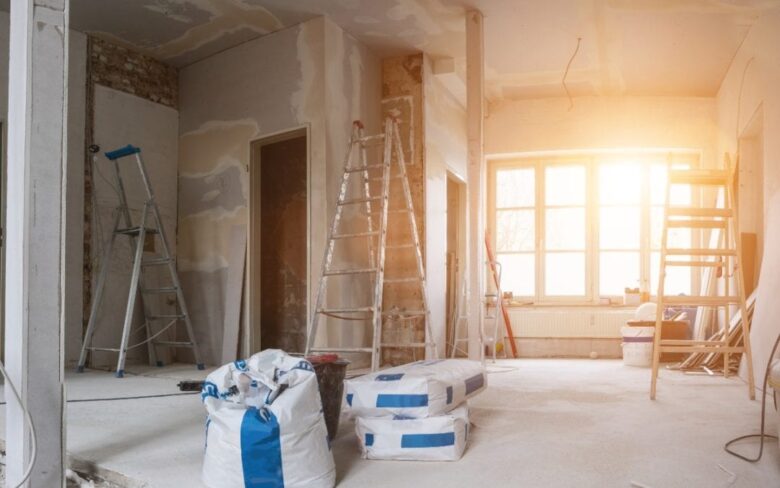Starting a home improvement project can be fun because you can transform the space and make a room feel new again. However, as budgets tighten and unexpected costs arise, the adventure can quickly get scary. A well-planned budget is crucial for a smooth renovation project, but common mistakes can put a strain on your wallet. Being aware of these potential problems is the first step to a smooth and cost-effective renovation that will make your home look better without spending a lot of money.
1. Wrong Estimates of Costs
One of the most common mistakes people make when remodeling their home is not estimating how much it will cost. This mistake isn’t just forgetting to record something; it is also not realizing all the costs involved. Unexpected structural repairs, the need for additional materials, and changes in labor prices are all examples of hidden costs. You’ll have to do a lot of research and get a lot of quotes to figure this out. Another way to avoid financial surprises is to provide a buffer for unexpected costs (usually 10-20% of the total budget).
2. Skip the Planning Phase
Undergoing a renovation without careful planning is like sailing without a map. Not having a complete plan can lead to project problems such as delays, additional work, and the purchase of additional materials, which can increase costs. Detailed planning involves creating design blueprints, selecting materials, developing a schedule, and setting a budget. Taking the time to develop a thorough plan can speed up the renovation process and make it more cost-effective and efficient.
3. Overlooking the Need for Permits
Many homeowners choose to skip the permitting process to save money or get the job done faster. But this oversight can cost you a lot of money, force you to remove structures that are not permitted or make your home more difficult to sell. You can avoid such costly frustrations by understanding local building codes and budgeting for permit costs from the start.
4. Choose the Cheapest Supplies
It may be tempting to save money by choosing the cheapest materials, but this option could end up costing you more in the long run. Cheaper materials usually mean lower quality, meaning they last shorter and require replacement or repair more often. It is important to find a balance between quality and price. Choosing durable, inexpensive materials will make your home last longer and increase its value.
5. Ignoring Professional Advice
DIY projects are attractive because they save you money on labor costs. But if you don’t have the right skills and experience, a DIY project can quickly turn into a costly disaster. Hiring a professional for help or advice can help you avoid costly mistakes and ensure a successful project. Professionals bring knowledge, accuracy, and knowledge of the best ways to do things, which can save you money and ultimately improve your renovation.
6. Make Design Changes on Site
It’s no secret that changing designs during a project can go over budget. Making changes to a project already in progress wastes materials and time and can lead to higher costs. If you want to stick to your budget, you must stick to your original plan. While it is good to remain flexible, any changes must be carefully considered and the financial and practical implications must be clear.
7. Neglecting to Plan for Unexpected Expenses
When you renovate, you often discover problems that are not initially obvious, such as electrical problems or weak links in the structure. If you don’t set aside money for these unexpected expenses, you could go over your budget. By setting aside money as a “just in case” fund, you will be prepared for anything so that projects can move forward without having to worry about financing.
Conclusion
To complete your home renovation, you will need to plan, budget, and make strategic decisions carefully. By understanding these seven common mistakes and not making them, you can prevent your project from spending too much money on unnecessary things. Remember that the purpose of the renovation is not just to improve your living space; It’s also about making your wallet healthier and making you happier in the long run.
FAQs
1. How much money should I set aside for unplanned expenses?
A good idea is to set aside 10 to 20 percent of your total renovation budget to protect you from unexpected expenses. This emergency fund can provide you with extra money if unexpected circumstances arise.
2. Should I hire a professional to help me repair my home?
Do-it-yourselfers may be able to complete simple tasks, but for more difficult or specialized jobs they will need to hire professionals. A professional can give you helpful advice, prevent you from making costly mistakes, and ensure that you achieve good results.
3. Do changing renovation plans affect my budget?
Certainly. Changing the design during a renovation can cost more time, money, and materials. Sticking as close to the original plan as possible can help keep costs down.
4. Does the city council have to approve all renovation projects?
Be sure to check with your local government as not all projects require permits. Failure to obtain the proper permits could result in fines, additional fees, or problems when you try to sell your home later.
5. How do I ensure that I don’t spend too much money on poor materials?
Do some research, review your options, and talk to a professional. Even though it may cost more initially, quality materials that are durable and beautiful will be worth it in the long run.



